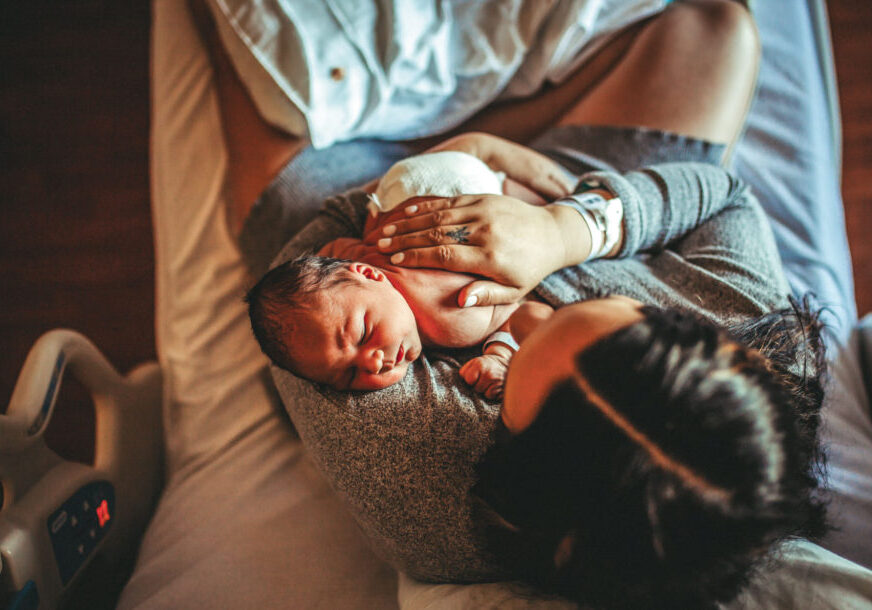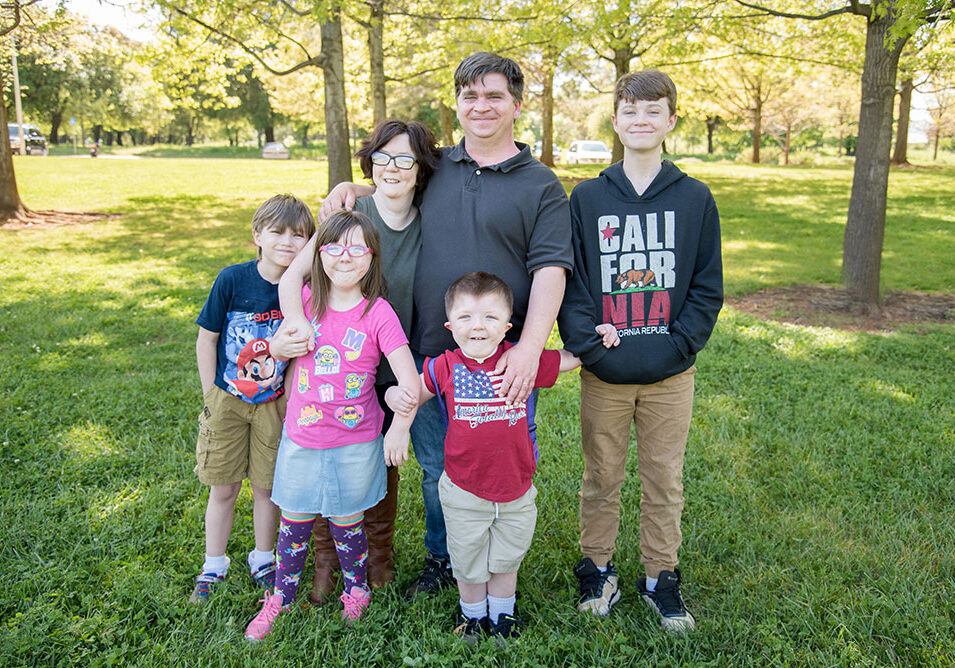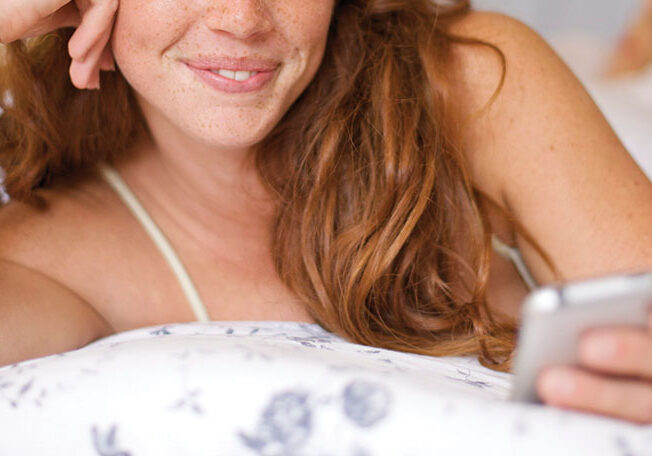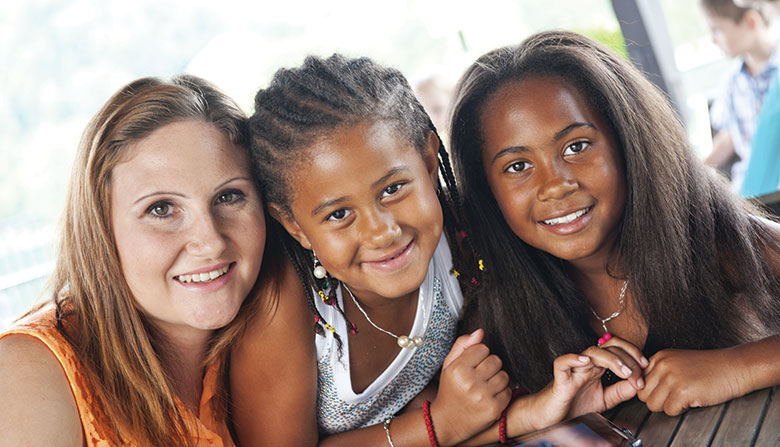With consistent limitlessness, I love all my children the same, born to me and adopted by me. Then again, if I’m honest, that’s not totally true. I love my adopted kids “more,” because more is required.
My adopted children arrived with invisible, overflowing suitcases of tough stuff – issues inherent to adoption – spilling over into our daily lives. These issues stemmed from the losses of family, family history and culture of origin.
I was confident in my ability to parent and I believed I had the basics down. But, I discovered that many of my thoughts about parenting adopted kids would eventually be proven partially or altogether untrue, such as:
- I never thought I would need to hold my child for hours while she sobbed her way into and around her birthdays, missing her birth mother. My experience was that birthdays were celebratory; she showed me they could be laced with pain.
What I know is love alone cannot negate any trauma my kids have experienced. However, honest dialogue, unending patience and the gifts of time and perspective help immensely.
- I thought loving my kids would be enough to get them through the rough patches of sibling squabbles, being bullied, identity development, personal compass navigation and adoption loss and grief.
What I know is that loving my kids is the easy part. Staying ahead of them in their psycho-social stages is the challenging job.
- I thought I would parent independently or collaboratively with my husband, with occasional advice from more experienced parents.
What I know is I needed to compile a team of therapists and support people who would help me hone my emotion coaching and parenting skills. These professionals and support people have educated me about how to better address the traumas my children experienced from not having their most basic needs met.
What I also know is that I have come to appreciate the wise advice of my kids, at first wholly unsolicited but genuine and later upon request. Their insights have been profound and honest proving a good check to gauge my effectiveness.
- I thought differences would not matter. I was oh-so-wrong. I was color-blind, entrenched in my white privilege.
What I know is differences matter greatly. We perceive our lives through these lenses of difference. To disregard our differences would be the same as turning our backs on who each of us is, who we are as a family unit and how each of us contributes to and supports each other and our remarkable family.
- I thought I would be able to weave my adopted kids into my family history and stories. I was partially correct here.
What I know is that as my kids have become older, they have put the brakes on being integrated too deeply into the family. They accept those they know or have known personally as their bonafide family.
When I share with my daughter, “You are named for your great, great grandmother.”
She responds, “Dad’s great-grandmother?”
I nod and think, “That would be a ‘yes,’ my child. Thank you for correcting me. We do not know the name of your great, great Chinese grandmother. I realize I have muddled your identity formation.”
- I thought I could sit back and watch each child emerge. I found out otherwise when I said, “You’re just like…” or “You remind me of …” when speaking to my birthed son.
What I know is that comparisons of this nature do not belong in a family such as ours. Comparisons of this nature are reminders of my kids’ adoptive statuses.
- I thought I would teach my children. And I do. Things like stranger-danger, wrong, right and shades of gray, peer-predatory behavior, how to be a good friend and think before you speak or act.
What I know is my kids have taught me far more. They’ve taught me how to appreciate the small things; the soothing balm of a good belly laugh or a long puppy-hug, the importance of being in the moment, the beauty of grace, how to soften the messages a parent must impart for safety and the significance of our blended family.
I thought I knew a lot about parenting. What I have realized is that I am challenged every day to grow, to examine how I raise my kids and to discover who I am as their parent. Although I know more with each passing day, and book-loads-and-countless-conversations more than I knew 22 years ago, I am still a novice.
Posted in: Community
Comment Policy: All viewpoints are welcome, but comments should remain relevant. Personal attacks, profanity, and aggressive behavior are not allowed. No spam, advertising, or promoting of products/services. Please, only use your real name and limit the amount of links submitted in your comment.
You Might Also Like...

Choosing the Best Diapers
How to Choose the Best Diapers for Your Baby and the Environment With the arrival of a new baby comes many challenging choices—co-sleep or crib, bottle, or breast. Cloth or […]

Celebrating Our Differences
A Mother’s Perspective How the Movie “Wonder” Sheds Light on Our Family’s Reality RJ Palacio wrote her bestselling novel Wonder after an encounter at a local ice cream shop. She and her […]
Empowering Children to Change the World (One Sock at a Time)
My daughter came to me from the foster care system when she was nine years old. Now that she is 12 and adopted, it’s important to her that she help others. […]

Why One Text Message is More Romantic Than a Hundred Valentine Cards
On Valentine’s Day, we try to purchase romance with one night of intense togetherness. But romance can’t be purchased, and the most romantic things may be the things we do […]


